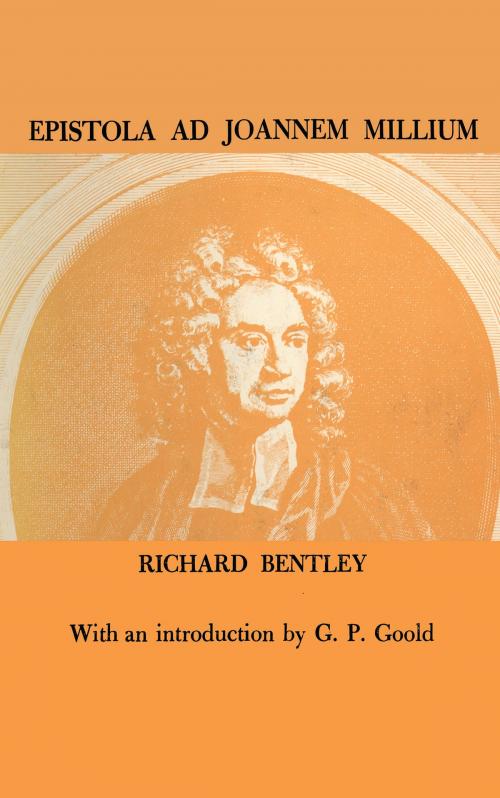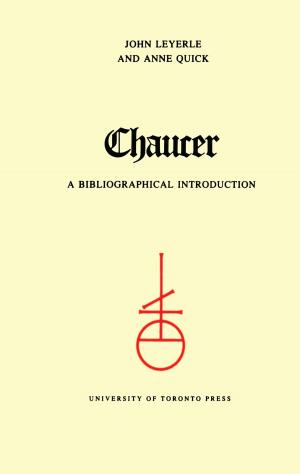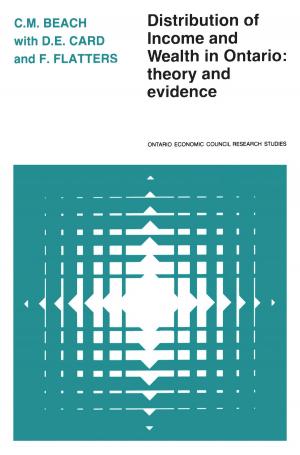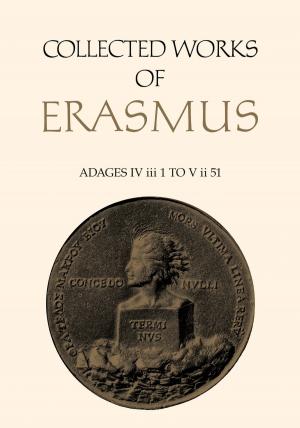Epistola ad Joannem Millium
Fiction & Literature, Literary Theory & Criticism, Ancient & Classical, Nonfiction, History, Ancient History, Greece| Author: | Richard Bentley | ISBN: | 9781442633513 |
| Publisher: | University of Toronto Press, Scholarly Publishing Division | Publication: | December 15, 1962 |
| Imprint: | Language: | English |
| Author: | Richard Bentley |
| ISBN: | 9781442633513 |
| Publisher: | University of Toronto Press, Scholarly Publishing Division |
| Publication: | December 15, 1962 |
| Imprint: | |
| Language: | English |
The year 1962 marks the tercentenary of the birth of Richard Bentley (1662–1742), Master of Trinity College, Cambridge, editor of Paradise Lost, but principally and justly famous as one of the greatest classical scholars. To mark the event, the University of Toronto Press is issuing a special reprint of Alexander Dyce’s edition of the Epistola (1691), the work which first brought Bentley fame, and which has long been out of print.
This Latin exercise was called forth by one of those unhappy productions which, mediocre themselves, have had the ill luck to attract the inspection of genius. In the eighth or ninth century A.D., Joannes Malelas of Antioch, a Greek writer, attempted a chronological record of mankind and in it he had recourse to name or quote from classical works no longer extant. English scholars in the seventeenth century prepared a translation of the chronicle into Latin and an accompanying commentary; just before its publication, under the final editorship of John Mill, Bentley was given an opportunity to read proof-sheets and the result was the Epistola, a collection mainly of some twenty-five notes upon statements found in or topics suggested by Malelas. This extraordinary performance by a scholar of 29 moves from one topic to another over a wide range of ancient literature, explaining or correcting some sixty Greek and Latin authors. The notes are not so much a commentary on the old chronicler as a set of dazzling dissertations pegged upon a random set of appalling howlers, and they reveal prodigious information and gift of divination. Bentley’s style in Latin is clear and spirited and seasoned with choice of quotation. The Epistola immediately secured for its writer the fame reserved for men of the rarest excellence and this classic among academic productions is still charged with power to instruct and inspire the scholarship of another era.
The year 1962 marks the tercentenary of the birth of Richard Bentley (1662–1742), Master of Trinity College, Cambridge, editor of Paradise Lost, but principally and justly famous as one of the greatest classical scholars. To mark the event, the University of Toronto Press is issuing a special reprint of Alexander Dyce’s edition of the Epistola (1691), the work which first brought Bentley fame, and which has long been out of print.
This Latin exercise was called forth by one of those unhappy productions which, mediocre themselves, have had the ill luck to attract the inspection of genius. In the eighth or ninth century A.D., Joannes Malelas of Antioch, a Greek writer, attempted a chronological record of mankind and in it he had recourse to name or quote from classical works no longer extant. English scholars in the seventeenth century prepared a translation of the chronicle into Latin and an accompanying commentary; just before its publication, under the final editorship of John Mill, Bentley was given an opportunity to read proof-sheets and the result was the Epistola, a collection mainly of some twenty-five notes upon statements found in or topics suggested by Malelas. This extraordinary performance by a scholar of 29 moves from one topic to another over a wide range of ancient literature, explaining or correcting some sixty Greek and Latin authors. The notes are not so much a commentary on the old chronicler as a set of dazzling dissertations pegged upon a random set of appalling howlers, and they reveal prodigious information and gift of divination. Bentley’s style in Latin is clear and spirited and seasoned with choice of quotation. The Epistola immediately secured for its writer the fame reserved for men of the rarest excellence and this classic among academic productions is still charged with power to instruct and inspire the scholarship of another era.















